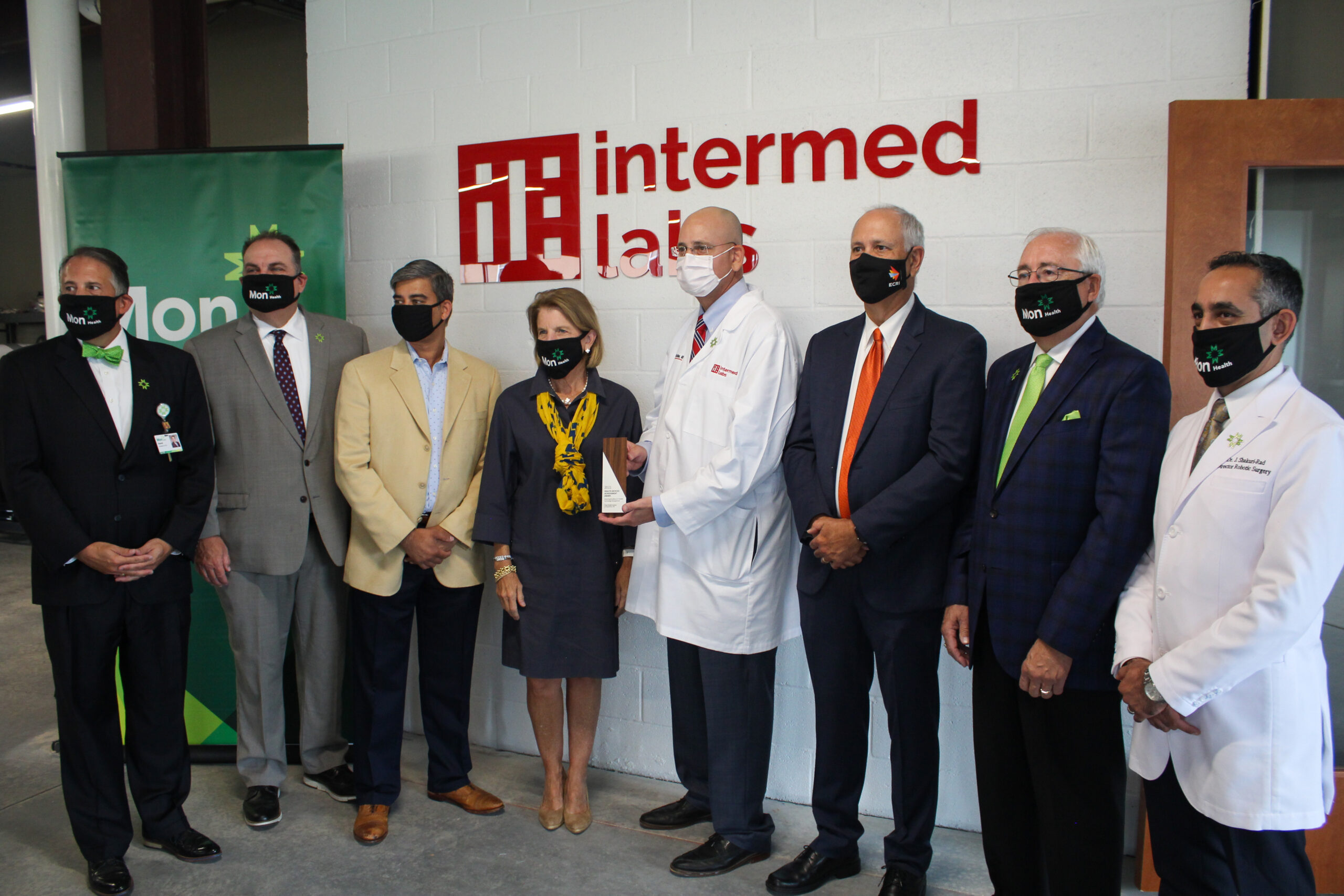Sen. Shelley Moore Capito (R-W.Va.) came to the Morgantown area Wednesday to commemorate Congressional Startup Day.
Observed annually since 2013 during the August congressional recess, Congressional Startup Day provides an opportunity for local entrepreneurs to connect with their senators and representatives.
Capito – who is co-chair of Congressional Startup Day – began her visit at Intermed Labs, a laboratory and startup studio at Mon Health focused on improvements to health technology. Later in the day the senator visited Vantage Ventures, a business incubator via the John Chambers School of Business and Economics at West Virginia University.
While at Intermed, Capito was shown many of the technologies the laboratory has helped to develop. One such technology was the V Splitr, developed in about a week as a response to the COVID-19 pandemic. The device provides HEPA filtration on an intubation tube, providing healthcare providers added protection from the respiratory virus during intubation of patients.
“I think this tells the best of the state. You can invent, you can have ideas, you can dream and then you can build upon those and actually bring it out into the market,” Capito said.

Another technology that caught the senator’s attention was Fingy 3D, an inexpensive finger prosthetic patients can order online and receive in a week.
“(It) seems like a small benefit but adding a prosthetic to a finger where you can grab things more aggressively, it makes me so proud of the West Virginia ingenuity,” she said.
During her visit, Capito stressed the importance of creating a, “center of excellence” through places like Intermed that can not only draw talent to West Virginia, but also maintain and develop the existing innovators.
“The amount of intelligence that these kids are showing and their drive and their grit is incredible,” Intermed co-founder Tom McClellan said. “People do not need to go to Silicon Valley. They need to team up with determined people that have skills. We have the skills here, we have the determination and we need to fund those projects. We just need the support of everyone else and we can do this here.”
Technology R&D specialist Noah Adams, who worked on the Fingy project, said it was “very validating that the work that we’re doing is being seen by professionals at that level, and the work we’re creating is being heard and appreciated.”
Adams’ collaborator, industrial designer Ephraim Pittore, agreed.
“I think we’re really trying to make something happen here, so the fact that people who make things happen come here, really makes it seem like the mission’s being accomplished,” he said.
Tweet @SchulzReports




